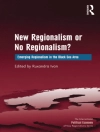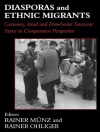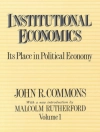Examines the nature of nationalist mobilization in Scotland and Catalonia.
Scotland and Catalonia, both ancient nations with strong nationalisms within larger states, are exemplars of the management of ethnic conflict in multinational democracies and of global trends toward regional government. Focusing on these two countries, Scott L. Greer explores why nationalist mobilization arose when it did and why it stopped at autonomy rather than statehood. He challenges the notion that national identity or institutional design explains their relative success as stable multinational democracies and argues that the key is their strong regional societies and their regional organizations’ preferences for autonomy and environmental stability
Inhoudsopgave
Acknowledgments
1. Autonomy and Its Explanations
2. Two Stateless Nations: Scotland and Catalonia
Part I: Politics
3. Scotland 1960–1979: The Road to Nowhere
4. Scotland 1979–1997: Centralization and Backlash
5. Catalonia 1975–1980: Compelling Autonomy
6. Catalonia 1980–2000
Part II: Policies
7. Shaping Autonomous Scotland: The Scotland Office and Scotland Acts
8. Constructing Catalonia: Policy Sectors and the Politics of Competencies
9. Will they stay or will they go?
Notes
References
Index
Over de auteur
Scott L. Greer is Assistant Professor of Health Management and Policy at the University of Michigan at Ann Arbor. He is the author of Territorial Politics and Health Policy: UK Health Policy in Comparative Perspective and the editor of Territory, Democracy, and Justice: Regionalism and Federalism in Western Democracies.












